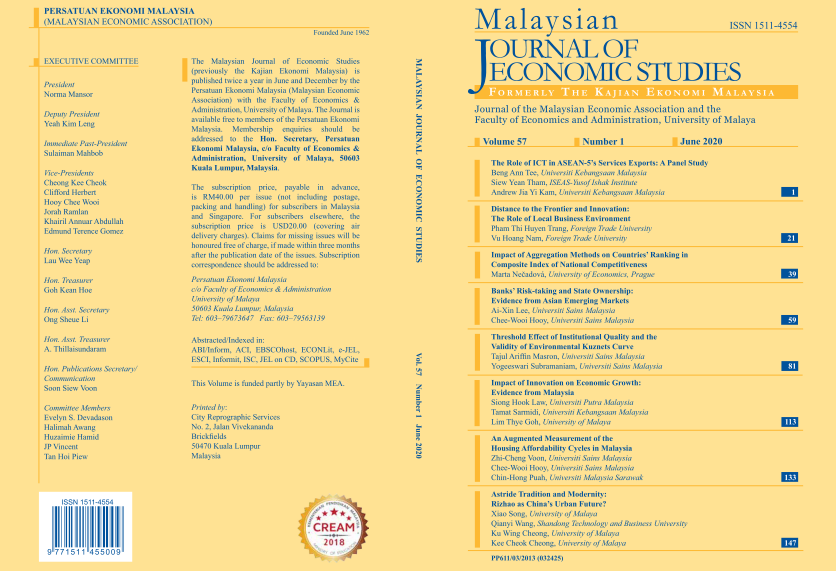Threshold Effect of Institutional Quality and the Validity of Environmental Kuznets Curve
DOI:
https://doi.org/10.22452/MJES.vol57no1.5Keywords:
Environmental degradation, environmental Kuznets curve (EKC) hypothesis, institutional quality, threshold modelAbstract
Using a threshold estimation technique, this study examines the validity of environmental Kuznets curve (EKC) under different institutional quality regimes. A combined set of 99 developed and developing countries over the period from 2008 to 2016 has been chosen to confirm the issue in hand. Adopting panel threshold regression technique by Hansen (1999), the paper finds evidence substantiating the presence of single threshold effect. In general, we find that EKC hypothesis does not hold in the full sample analysis, in which high income fails to bring environmental degradation down. Only in the case of a segregated sample of developed countries, we find that the impact of high income (or income square) on environmental degradation is negative and significant after a certain level of ‘high’ institutional quality has been attained. On the contrary, EKC is found to be invalid, and high income fails to be converted fully to environment-protecting activities in developing countries. Therefore, the effectiveness of income in mitigating environmental issues seems to be dampened by the poor institutional quality in developing countries.







